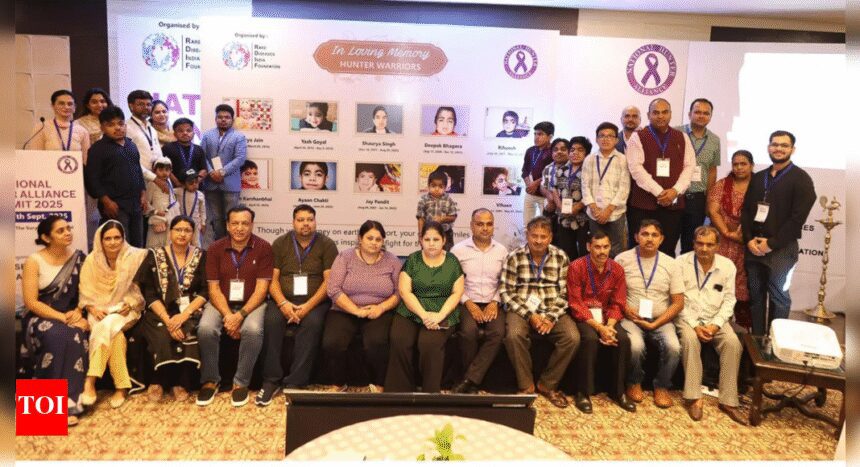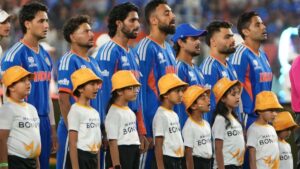NEW DELHI: The National Hunter Alliance Summit 2025 convened on September 27, 2025, in New Delhi, attracting patients, caregivers, medical professionals, policymakers, and advocates to address the critical challenges faced by those affected by Hunter Syndrome (MPS II) and other rare diseases.
The event commenced with a poignant tribute to individuals who lost their lives to Hunter Syndrome, underscoring the urgent need for action within India’s rare disease ecosystem. Prof. (Dr.) Shefali Gulati of AIIMS, New Delhi, and a member of the Central Technical Committee for Rare Diseases (CTCRD), highlighted the necessity for a coordinated and collaborative approach among stakeholders to improve rare disease management, policy execution, and patient care.
Mr. Saurabh Singh, Co-founder and Director of Rare Diseases India Foundation (RDIF), presented a critical analysis of existing shortcomings in the implementation of the National Rare Disease Policy 2021 (NRDP). While Hunter Syndrome is recognized under this policy, he pointed out that the financial assistance of Rs. 50 lakh remains largely ineffective since treatment costs can soar into crores. He noted that patients often face denial of support during emergencies at private hospitals, and that benefits under Ayushman Bharat Yojna are limited to below-poverty-line (BPL) families, excluding many patients. Furthermore, there is a lack of caregiver support, despite families incurring substantial monthly expenses and emotional strain. The absence of insurance coverage for rare diseases and the dearth of research aimed at reducing the costs of life-saving treatments were also significant concerns discussed at the summit.
Singh raised the issue of judicial delays, emphasizing that they deny children their constitutional right to life as per Article 21. He drew attention to the challenges faced by dependents of Defence personnel and Central Government Health Scheme (CGHS) beneficiaries, where bureaucratic delays in drug procurement create treatment gaps of 3 to 6 months. He noted, “If India could research and deliver a COVID vaccine in months, why has there been no progress in rare diseases over the last 12 years?”
In a heartfelt moment, Singh shared his personal loss of his 13-year-old son, Shaurya, to Hunter Syndrome on August 20, 2025. He pledged to continue advocating for affordable or free medicines for every rare disease patient in India, stating, “My ongoing work for this cause will be my eternal tribute to Shaurya.” His resolve resonated with attendees, reflecting the deep emotional struggles faced by many families in similar situations.
The summit also featured an impactful account from Ex-Serviceman HAV D.K. Chansolia, who recounted the difficulties in procuring life-saving medications for his son within the Defence healthcare system. He voiced his disappointment over procedural delays and the shortage of specialized experts that contribute to treatment gaps, stating, “As someone who served the nation, I had faith that my family’s healthcare needs would be supported. Today, I feel disheartened.”
The summit concluded with a collective appeal to the Government and the Hon’ble Supreme Court to urgently address these significant gaps and work towards saving the lives of patients suffering from rare diseases.










